The pushback against unnecessary plastic packaging has been growing for some time, with supermarkets and food brands falling over themselves to announce their latest new plastic-free packaging innovation.
Admittedly, not all of them have been well-received (we’re looking at you, Sainsbury’s…), but it’s common knowledge that humans need to cut down on single-use plastic. Despite this, supermarket fruit and veg aisles still feature row upon row of apples, bananas and other fresh produce, all tightly wrapped in plastic packaging.
However, this might not be the case for much longer.
Currently, some fresh produce can be found both loose and packaged – but climate action organisations are calling for this to be applied across the board, with the ultimate goal of eliminating plastic packaging entirely.
The move would remove an estimated 1.7 billion pieces of plastic packaging from usage, avoid over 77,000 tonnes of food being wasted, and save shoppers a combined total of over £85 million in uneaten food. It’s hard to argue against the idea.
But despite the hugely positive impact the move would have, consumers remain reluctant to take it up. Although loose food is not a new thing (hello ‘pick and mix’), it seems that when the same rule is applied to fruit and veg, shoppers aren’t quite as keen on the idea, citing a range of concerns including hygiene and cost.
Is the goal a realistic one for the grocery sector?
What are the current targets?
While climate action NGO Wrap originally hoped that 80% of packaging on fresh fruit and veg could be removed by 2025, last week it updated this estimation, cutting back plans to a new goal of 30% by 2025.
Industry experts said the initial target was too ambitious and that supermarkets would not be able to deliver. Under the new industry pathway, retailers are encouraged to work towards each target as a minimum.
Specifically looking to change the way apples, aubergines, avocados, bananas, broccoli, cabbages, carrots, ginger, garlic, lemons, limes, mangos, onions, oranges, parsnips, pears, peppers, potatoes, squash, swede and salad tomatoes are purchased, the first target wants supermarkets to be selling at least one line across each of these items loose, if two or more types of that product are stocked.
By the end of 2024, this will be applied to each produce line, rising to 30% of all uncut fresh produce volume sales in store loose by 2025. By the end of 2030, the aim is for this to extend to 50%.
“Nobody wants to see good food go to waste or add to the tide of plastic packaging which blights our streets and beautiful countryside,” Defra minister, Rebbeca Pow says.
“This ambitious new initiative will help to tackle both these issues and builds on recent government efforts in this area.”
Fresh Produce Consortium regulation and communications manager, Kelly Shields adds that Wrap’s pathways, which comes ahead of GB legislative requirements, “show pro-active commitment from the fresh produce industry”.
Wrap’s research found that if plastic packaging was removed from the top five most wasted fresh fruit and veg products alone, 100,000 tonnes of food waste could be prevented.
What are supermarkets doing and is it enough?
Many convenience stores and discount grocers are unable to offer loose products, with just 15% of fruit and veg sales currently coming from loose products. This is for a number of reasons; not least the lack of weighing facilities.
It’s a different story at the larger supermarkets though, where a Waitrose spokesperson told Grocery Gazette that it remains on target to meet Wrap’s 2030 ambition.
“Our loose fruit and veg remain a popular choice. We’re working hard to increase our packaging-free selection, whilst also offering great value products that meet our high standards on quality and taste.”
As active members of the Wrap working group which “explores opportunities to reduce packaging and offer more loose products, without affecting product quality or longevity”, Asda is also pushing forward with plastic-free produce.
A spokesperson revealed the supermarket is “currently trialling more loose produce lines” at its trial store in Leeds, “to see if more can be rolled out across all our stores as we look towards the 50% target by 2030”.
Sainsbury’s also told Grocery Gazette it is “committed to reducing our own-brand plastic packaging by 50% by 2025 by removing any unnecessary plastic packaging where possible”.
However, the Big 4 grocer acknowledged customer concerns, adding that packaging “plays a vital role” in keeping the supermarkets food “safe and fresh.”
“Since 2019 we have implemented a range of initiatives including removing single use plastic bags from loose fruit and veg. We will continue to work with Wrap to meet the targets set out in the UK Plastics Pact,” the spokesperson added.
Despite this, City to Sea head of campaigns Jo Morley doesn’t think that supermarkets are doing enough, pointing out that removing plastic packaging from fruit and veg “is nothing new,” adding “it’s already happening in France and other countries in Europe.”
France has already banned 30 fruits and vegetables from being wrapped in plastic packaging and Spain, Portugal and Luxembourg are set to follow later this year.
Morley says supermarkets need to help customers to “choose loose”.
While Everyday Plastic founder and director, Daniel Webb admits that removing packaging from fruit and veg is a “big and complex task,” he says that the pledges made by supermarkets in the Wrap report are “just another set of unambitious, voluntary commitments”.
“They are not acting urgently enough nor seeing how huge this opportunity is for pioneering and positive change. Together, we must help shoppers to save plastic, money, and food waste by encouraging them to choose loose.”
Are shoppers ready to go plastic-free?
Although supermarkets are moving in the right direction, TGW Logistics Group vice president, James Osborn says that shoppers are “just not ready” for the move yet.
He cites the top reason for this as hygiene.
A recent survey by Everyday Plastic and Find Out Now also confirmed that hygiene is one of the major concerns that many shoppers have about buying loose fresh produce, particularly in the wake of the Covid-19 pandemic. Osborn suggests that a “medium term solution” could be “more sustainable products for movement and reuse or recycling.”
He suggests that rather than scrapping packaging entirely, the industry could instead explore new products and materials that “minimise our impact on the environment”, but still meet “challenging physical demands”.
Other concerns include produce longevity and cost, with many assuming (wrongly) that loose produce is more expensive. Research from Wrap also shows that plastic packaging does not actually help to prolong the life of uncut fresh fruit, and that refrigeration is more effective.
Former Friends of the Earth campaigner and Everyday Plastic board member, Julian Kirby points out that by making loose fruit and veg more expensive, supermarkets are “penalising people who want to do the right thing”.
He adds that “rather than helping customers say no to pointless plastic, it appears supermarkets are actively encouraging them to buy more”.
While the efforts of Wrap and other environmental organisations certainly haven’t gone unnoticed by retailers, it’s also clear that more can be done. If each of the UK’s leading supermarkets were able to maintain 50% of uncut fresh produce sales in store loose by 2030, that would be an undeniable achievement for the industry.
However, with that goal still seven years away, it also gives supermarkets no excuse in not encouraging, educating and incentivising consumers to get on board with this more sustainable way of shopping.





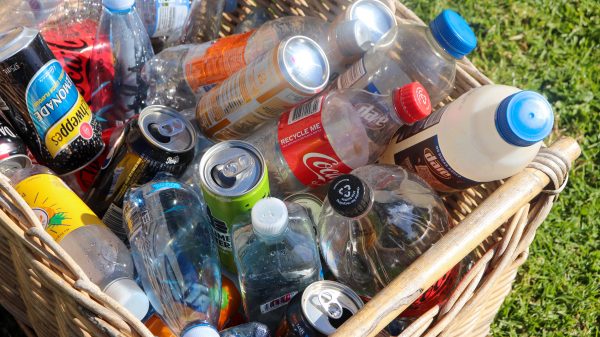
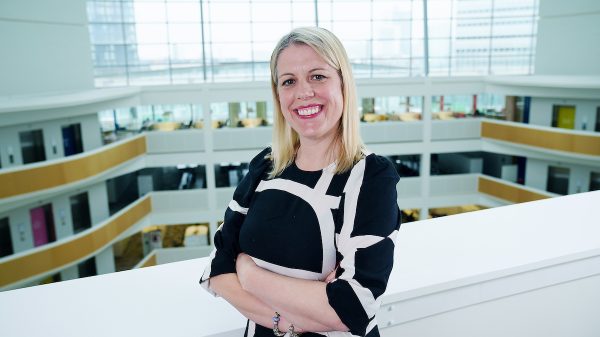
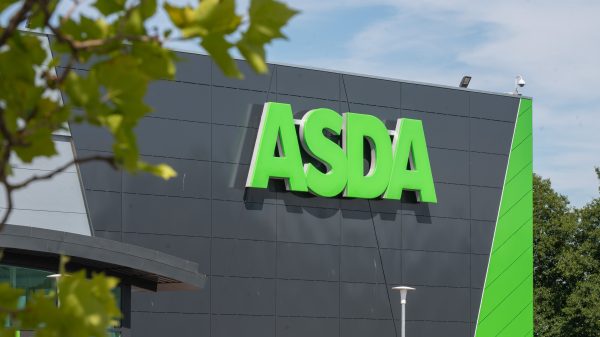
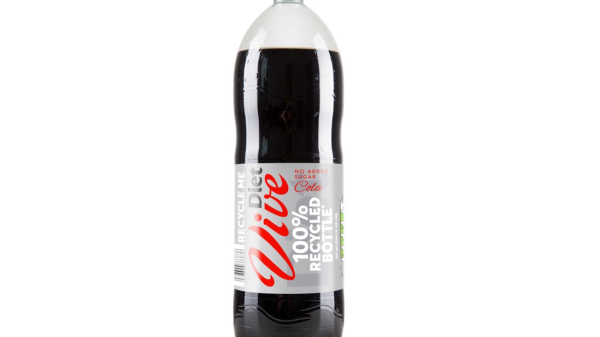
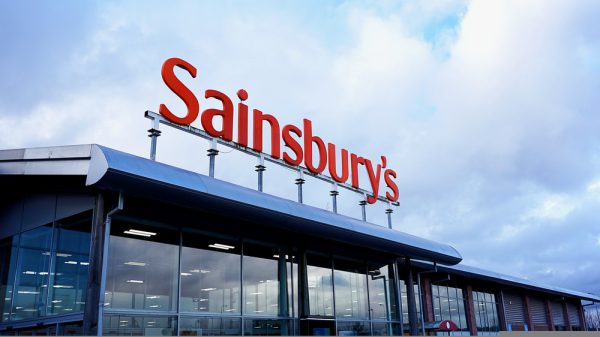

3 Comments. Leave new
This customer and retired colleague of Tesco is prepared to buy plastic free fruit and vegetables.I use nylon see through and reusable bags to buy my fruit and vegetables loose.The bags are washable.
Your comment that removing plastic packaging would “avoid over 77,000 tonnes of food being wasted, and save shoppers a combined total of over £85 million in uneaten food. It’s hard to argue against the idea.” is nonsensical. Plastic packaging helps to prevent products from getting squashed or damaged and so could help to prevent food waste. You cannot put precise figures on these things, however.
I recently tried getting a single carrot from my local Tesco as that was all I needed but for reasons best known to Tesco they had stopped selling loose carrots but only had bags of carrots (plastic). I didn’t buy the bag, and when it came to the checkout, wasn’t allowed to buy one individual carrot (a member of staff had opened the bag and emptied the contents out so I could get just the one, but at the checkout they couldn’t put a single carrot through, only bags, so I had to go without!).
Customers should have a choice between getting prepacked fruit and vegetables or individual ones.
It’s impossible to buy loose fruit and veg in my local Tesco as they have NO bags to put them, where it is impossible to take them loose, like mushrooms, berries etc.
It’s like they don’t want us to use loose produce.
I know we can take our own but sometimes we forget.